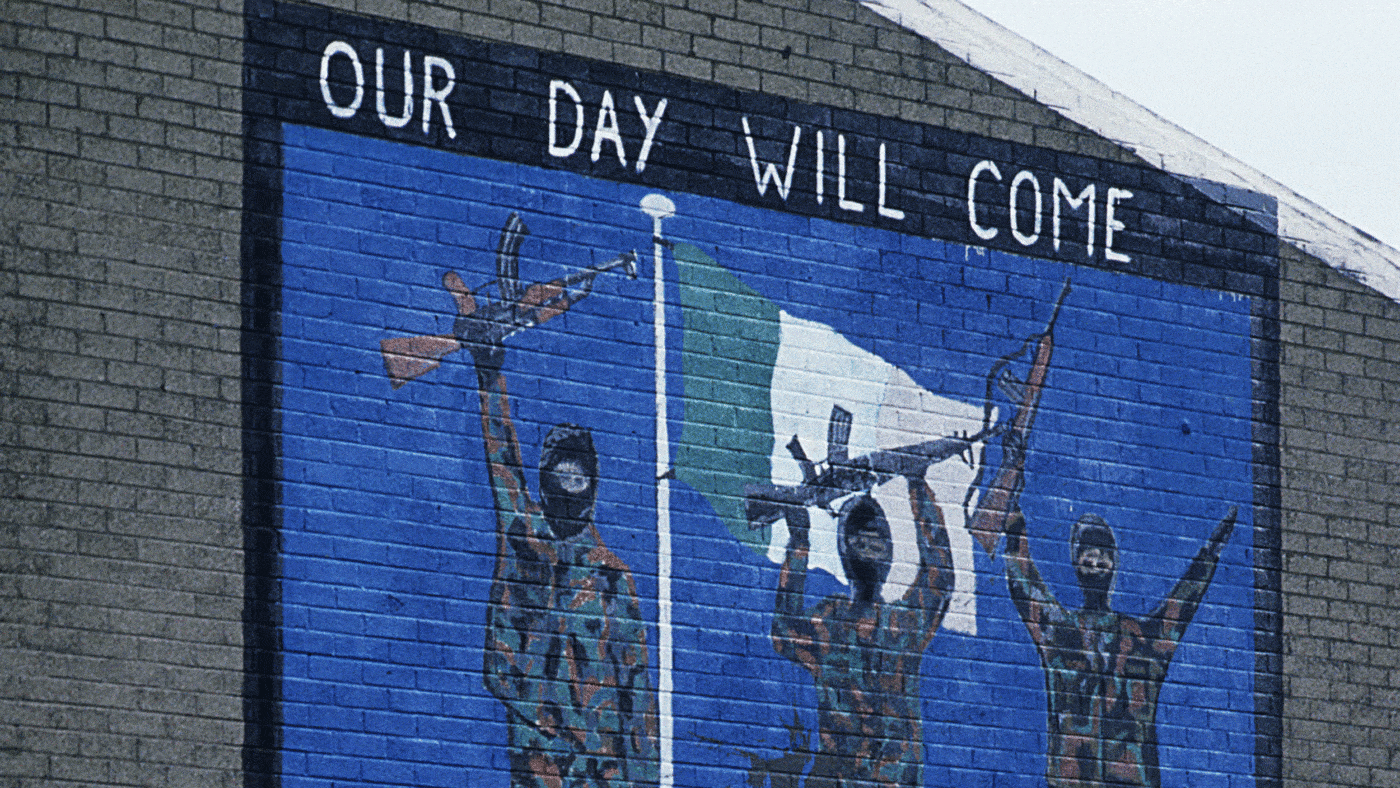Often, when the story of the Troubles in Northern Ireland is recounted, supporters of violent republicanism like Gerry Adams and Martin McGuinness are portrayed as peacemakers. In these accounts, it was their influence that caused the IRA to abandon terror and pursue politics.
The truth is that the violence really ended thanks to the British security services. By the 1980s and 1990s, the IRA was thoroughly infiltrated by agents acting on behalf of Army intelligence and the Royal Ulster Constabulary (RUC) Special Branch. These spies eventually made the republican campaign untenable.
That period certainly involved difficult moral trade-offs and murky decisions that would later be portrayed as misbehaviour by the state. But the so-called ‘dirty war’ was ultimately a success; first containing the paramilitaries’ bloody activities and then forcing them to a standstill.
Last week, this complicated context was not sufficiently highlighted as the former Chief Constable of Bedfordshire Police, Jon Boutcher, who now leads the Police Service of Northern Ireland (PSNI), published his interim report on Operation Kenova. This long and expensive investigation involves the agent ‘Stakeknife’, a high-level mole within the IRA, described by one former Army commander as the ‘goose who laid the golden eggs’.
In contrast, Boutcher’s report concluded that Stakeknife probably ‘cost more lives than he saved’ and suggested that the Government, as well as the IRA, should apologise for its conduct during this period.
His conclusions have been criticised by former intelligence personnel, as well as unionist politicians in Northern Ireland. The province’s Secretary of State, Chris Heaton-Harris, responded by praising the ‘courage, dedication and sacrifice’ of the security forces during the Troubles.
The Operation Kenova document did not name Stakeknife, due to protocols that protect the anonymity of agents even after their deaths, but he was named in 2003 as a west Belfast man, Freddie Scappaticci, who died in April last year.
Scappaticci was interned alongside Gerry Adams in the 1970s and subsequently led the IRA’s Internal Security Unit (ISU), known as the ‘nutting squad’. Among other duties, it was responsible for hunting down and shooting informants within the paramilitary organisation and the republican areas it dominated. The irony was that the IRA’s chief spy catcher was actually a British mole.
Operation Kenova’s allegation is that, in order to protect their asset, Scappaticci’s handlers allowed the IRA to commit murders that could have been avoided. Boutcher claimed that the number of deaths Stakeknife prevented was exaggerated, and that they did not outnumber the killings for which he was responsible.
That’s a difficult conclusion for the families of the victims of these murders to stomach. It may even be a fair judgement in the case of Scappaticci. But Boutcher went further, by questioning the tactics of UK intelligence during the Troubles, recommending a state apology and, it is claimed, implying equivalence with terror groups.
Admittedly, the report drew particular attention to ‘the most shameful and evil actions’ of republicans. ‘It was the PIRA (Provisional IRA) that committed the brutal acts of torture and murder,’ it concluded, ‘each evil act being the epitome of cowardice’. Those crimes, it stated, were condoned and are still condoned by senior figures in the movement (which includes Sinn Fein).
The document made an important distinction between the activities of the IRA and members of the intelligence services, whom Kenova acknowledged worked under ‘exceptionally stressful’ conditions, with many of the dilemmas they faced affording ‘no right answer’.
The fact, though, that this investigation took place at a cost of £40m was a reminder that the legacy of the Troubles is not being dealt with in an even-handed way. The crimes of the IRA, many of them unsolved, are rarely subjected to such historical scrutiny.
A former RUC Special Branch officer, Dr William Matchett, told the Belfast News Letter on Saturday that the report did not ‘reflect the reality’ of the difficult environment in which intelligence agencies had to operate. Dr Matchett, who wrote the book Secret Victory: The Intelligence War that Beat the IRA, asked:
‘What kind of stigma are they (the Operation Kenova team) attaching to the handlers?… In my experience we could not have prevented every death. It used to be said that nine out of ten attacks… were being stopped – now they’re saying that wasn’t good enough’.
The Traditional Unionist Voice MLA, Jim Allister KC, described the report as an ‘attempt to share the blame’ between IRA killers and the security forces. Meanwhile, the DUP leader, Sir Jeffrey Donaldson, said that the success of army and police intelligence operations had rendered the IRA ‘almost inoperable’.
The Operation Kenova investigation came close to performing a useful task by highlighting the republican movement’s culpability and continued support for brutal crimes against informants. However, rather than focus on the fact that the security forces defeated the paramilitaries and ended the Troubles, by infiltrating the IRA and other groups, Boutcher and his team granted Irish separatists another opportunity to distort the history of that period. Their demand for a government apology was an example of overreach that undermined the rest of their work.
The Operation Kenova report may not actually have suggested the state was equally culpable. But it will undoubtedly be used to again imply that the police and the Army, rather than the terrorist perpetrators, were to blame for the death and destruction of the Troubles.
Click here to subscribe to our daily briefing – the best pieces from CapX and across the web.
CapX depends on the generosity of its readers. If you value what we do, please consider making a donation.


